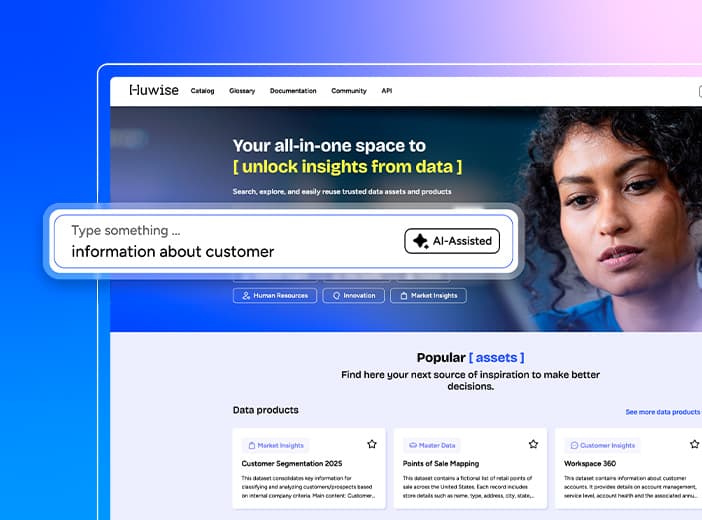Data contract
A data contract is a formal agreement that defines how data is structured, formatted, and communicated between different components of a data system.
What is a data contract?
A data contract is a formal agreement that defines how data is structured, formatted, and communicated between different components of a data system. It outlines the structure, format, semantics, quality, and terms of use for exchanging data between a data producer and data consumers, providing a Service Level Agreement (SLA) and ensuring and enforcing data consistency, reliability, and compliance.
While a data contract can cover data exchange between any parts of a distributed data ecosystem, it is particularly vital for the delivery of data products, ensuring that data producers and consumers are clearly aligned in their expectations, building trust and increasing data consumption by both humans and AI.
Effectively it acts in the same way as any other contract between a buyer and a seller. Data contracts provide end users with a precise agreement regarding what the data product owner intends to deliver and how the data product should then be used, building trust between all parties.
Data contracts are both machine and human-readable and are implemented by a data product’s output port or other means, and are published along with the data product on a data product marketplace. They can also be stored within data catalogs.
What does a data contract contain?
A data contract normally covers these key areas:
- Data schema: how the data is structured, organized and formatted
- Data semantics: what the data means and how it should be interpreted
- Data quality: how accurate, complete and consistent the supplied data will be
- Terms of Use: how the data can be used, accessed or shared, and who has access to it, supporting data governance, security and compliance with regulations such as the GDPR
- Service Level Agreements (SLAs): clear guarantees related to how frequently data will be delivered, data freshness and interface quality
While they cover technical specifications it is vital that data contracts are easily understandable to business users in order to build trust in the data products they are accessing and consuming.
When is a data contract used?
Data contracts are used in multiple scenarios:
- In real-time systems where data is exchanged automatically and feeds into and impacts other solutions. Examples include financial services/trading solutions, healthcare and supply chain applications.
- In data pipelines to define the structure, format and quality of automated data flows.
- In event processing applications where information is shared within specific parameters, providing a clear guarantee of what will be delivered.
- In the consumption of data products, defining quality requirements, format, and how data can be used, either within the organization or with business partners.
Why are the benefits of a data contract?
Data contracts essentially enable the sharing of distributed data at scale, increasing consumption, streamlining integration, improving compliance, and enabling smooth collaboration across teams. Thanks to this they provide seven key benefits:
- Greater trust and usage as users understand exactly what data covers, quality levels and how it can be used.
- Improved data quality by putting in place strict expectations in areas such as data accuracy, validation methods, frequency of updates and data freshness.
- Lower integration costs and increased efficiency as there is a common understanding of data and integration and sharing is automated.
- Reduced data silos, with data sharing leading to effective communication and collaboration between data producers and data consumers.
- Stronger data governance, enforcing policies around how data can be shared and consumed, and by whom, ensuring compliance with organizational and regulatory compliance requirements.
- Fewer errors or disputes as expectations and responsibilities are clearly set out and agreed upon by both data producers and data consumers.
- They contribute to the creation of a data-driven culture, where data is democratized, shared and consumed across the business, leading to organizational benefits around more informed decision-making, greater efficiency, and lower risk.




